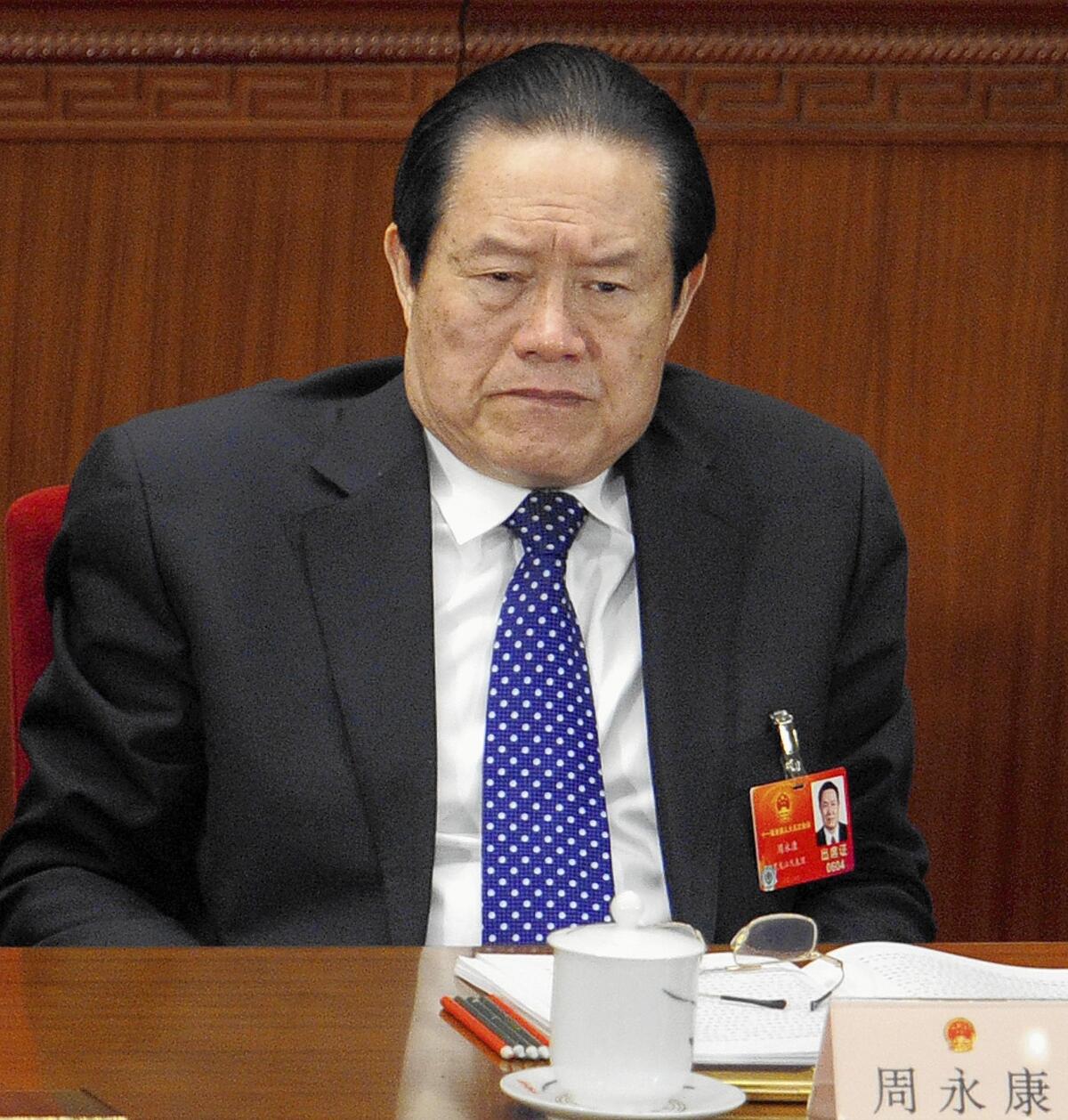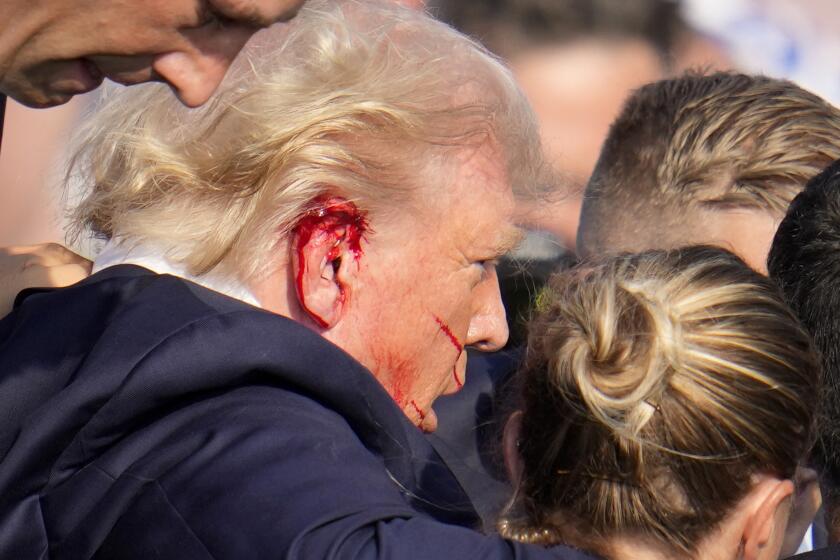Zhou Yongkang, the Chinese ex-official not on everyone’s lips

BEIJING — In J.K. Rowling’s Harry Potter books, few dare to speak the name of the evil Lord Voldemort. Lately, Chinese politics has had its own “He Who Must Not Be Named” or “You Know Who”: the former domestic security czar, Zhou Yongkang.
Zhou retired in the fall of 2012 from the Politburo Standing Committee, the highest body in the Communist Party, and rumors soon began to swirl that he was the subject of a corruption inquiry (or some high-stakes political score-settling, depending on one’s point of view). Last December, numerous foreign news media reported that Zhou had been placed under formal investigation, though there has been no official announcement from Chinese authorities.
Since then, the net around Zhou has appeared to be tightening almost by the day, ensnaring family members, business associates and other connections. Some of the more aggressive mainland news media have reported that his son Zhou Bin, one of his brothers, Zhou Yuanqing, as well as his brother’s wife and his brother’s son have been detained and are under investigation, along with numerous former Sichuan province officials, where Zhou once served as party secretary.
Yet none of these Chinese-language reports have explicitly and straightforwardly mentioned Zhou Yongkang’s name, nor his relation to the growing pool of people under scrutiny. The articles have dropped hints and left all manner of breadcrumbs, all without calling out the elephant in the room.
The hesitancy to refer to Zhou by name is rooted in the fact that members of the Politburo Standing Committee, whether current or retired, have long been considered untouchable. That censors have allowed so many articles discussing allegations of corruption among Zhou’s family members, some observers have noted, is a sign of growing openness.
Xie Haitao, an independent reporter who has written several investigative articles on the Zhou family published by the respected magazine Caixin, said the Zhou matter was particularly sensitive before a pair of key political gatherings in Beijing this week. The gatherings, known as the “two meetings,” involve the National People’s Congress (NPC) and the Chinese People’s Political Consultative Congress (CPPCC).
“It’s my decision not to point it out, to name him in my stories,” Xie said. “I think it’s not the right time to do it; this is a politically sensitive story. So that’s why we haven’t made it explicit. But after the two meetings, I think a lot of things will be out in the open.”
Many observers are expecting the government to announce some legal action against Zhou by the end of the two meetings.
“There’s one ‘big tiger’ behind businessman Zhou Bin, and everyone is waiting for him to be exposed,” the Beijing News and other newspapers said this week.
The taboo on invoking Zhou Yongkang’s name half-burst over the weekend, when a reporter for the Hong Kong-based English-language South China Morning Post attended a news conference and lobbed a question at a government spokesman, Lu Xinhua, that mainland reporters have hesitated to utter so directly: There have been many reports on Zhou Yongkang. Can you comment on them?
The room erupted in laughter, and Lu grinned. “Actually, like you, I got the information from certain media,” said Lu, spokesman for the CPPCC.
“Anyone who violates the party’s discipline and state law will be seriously investigated and punished, no matter who he is or how high-ranking,” Lu responded, adding that 31 top officials had been investigated or punished in the last year.
“I can only say this much so far,” Lu concluded, then added with a smile, “You understand.”
The room roared with laughter, and “you understand” quickly became a meme online, with people applauding what they called Lu’s “candor” on the matter.
With the CPPCC in full swing and the NPC beginning Wednesday, more open news conferences are scheduled — and more direct questions from foreign journalists covering the sessions are likely.
That prompted the English-language Global Times, a paper with close ties to the Communist Party, to reflect in an editorial Tuesday on whether propaganda officials have made a strategic error by discouraging Chinese reporters’ discussion of Zhou and other sensitive matters.
“The wonderful nature of the two [meetings’] press conferences lies in the bold questioning by non-mainland reporters, which exposes the disadvantage of mainland media and demonstrates the aggressiveness of their counterparts,” said the editorial, signed “Shan Renping,” which is believed to be a pseudonym used by the paper’s top editors.
“This is a predicament for China’s soft power,” the piece said. Though it acknowledged that “there is a reason for the country to keep its current practices” when dealing with sensitive issues, it said that doing so also damages the credibility of the mainstream media.
“We need to take this problem seriously,” the editorial concluded. “One of the biggest challenges for China’s long-lasting stability nowadays is that the influence on mainstream public opinion is dwindling.”
Tommy Yang in The Times’ Beijing bureau contributed to this report.
More to Read
Sign up for Essential California
The most important California stories and recommendations in your inbox every morning.
You may occasionally receive promotional content from the Los Angeles Times.





